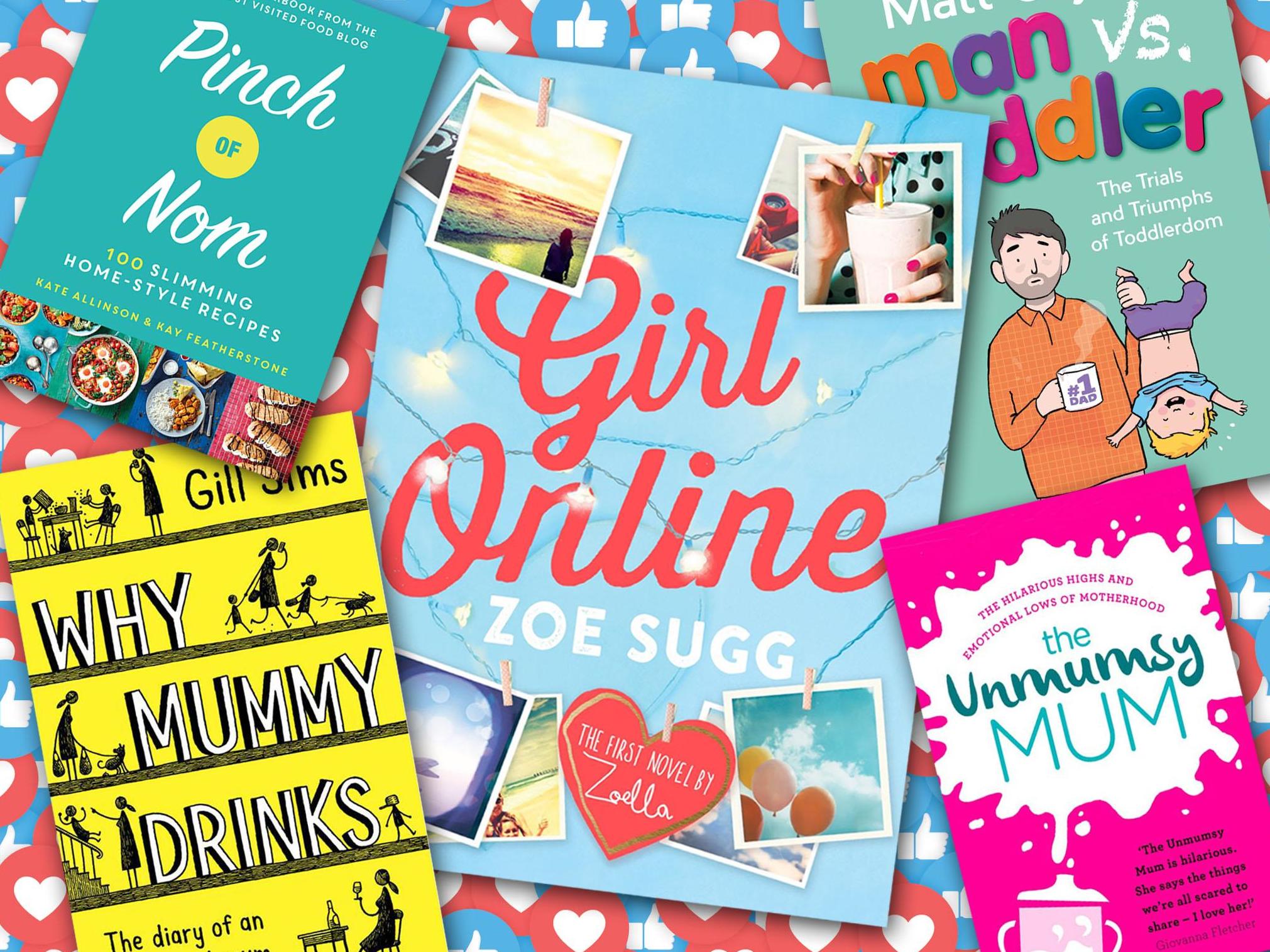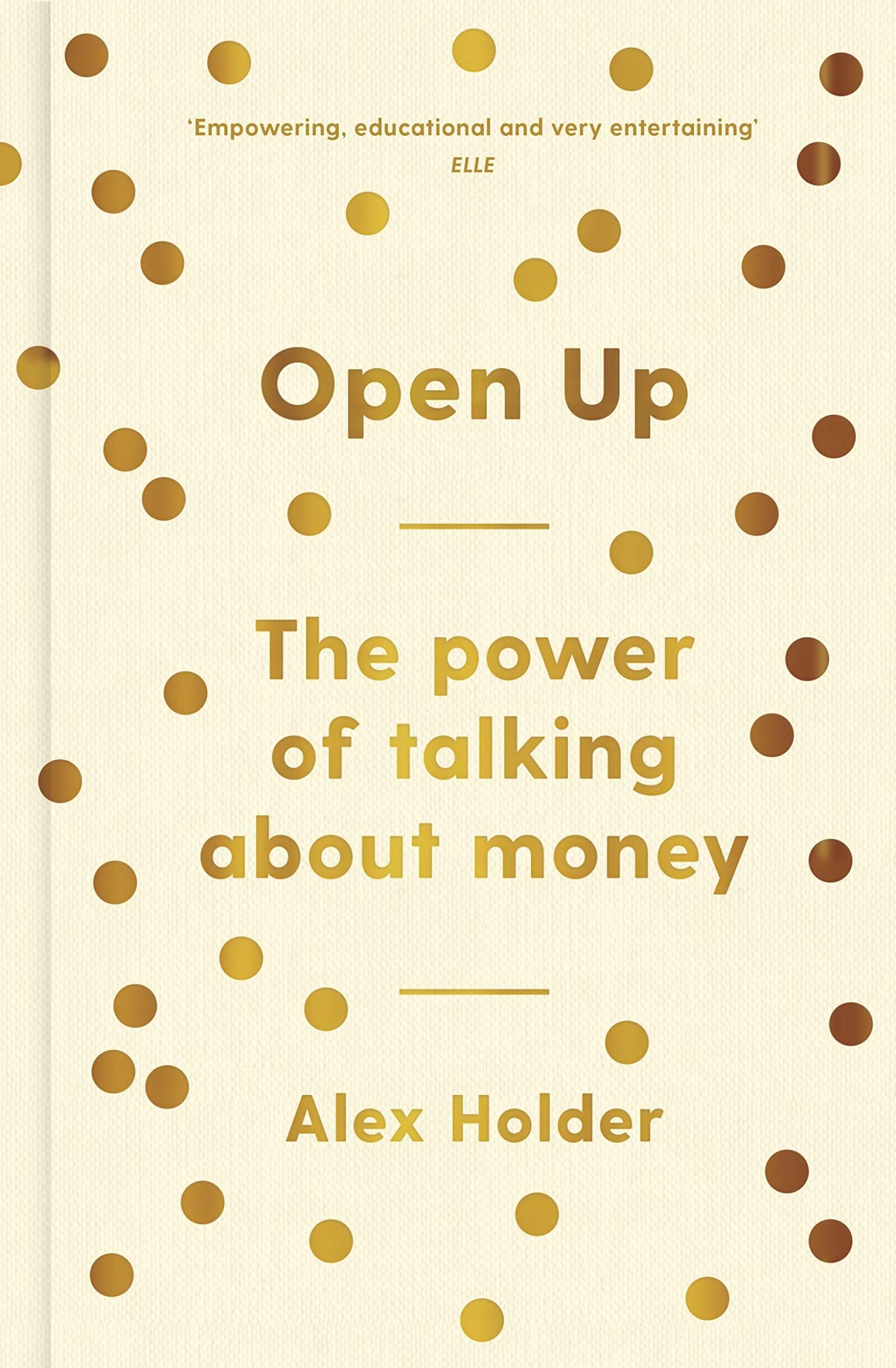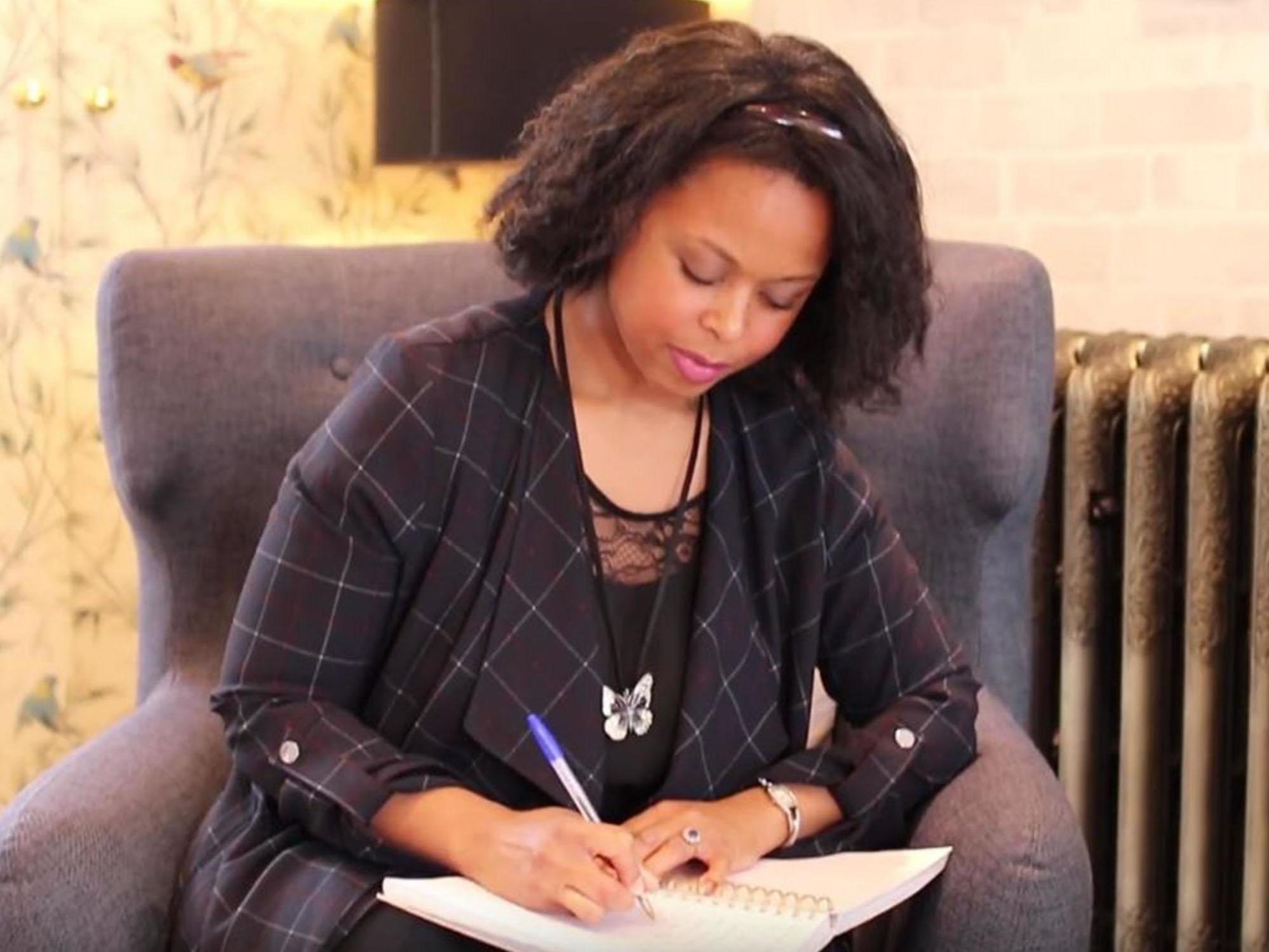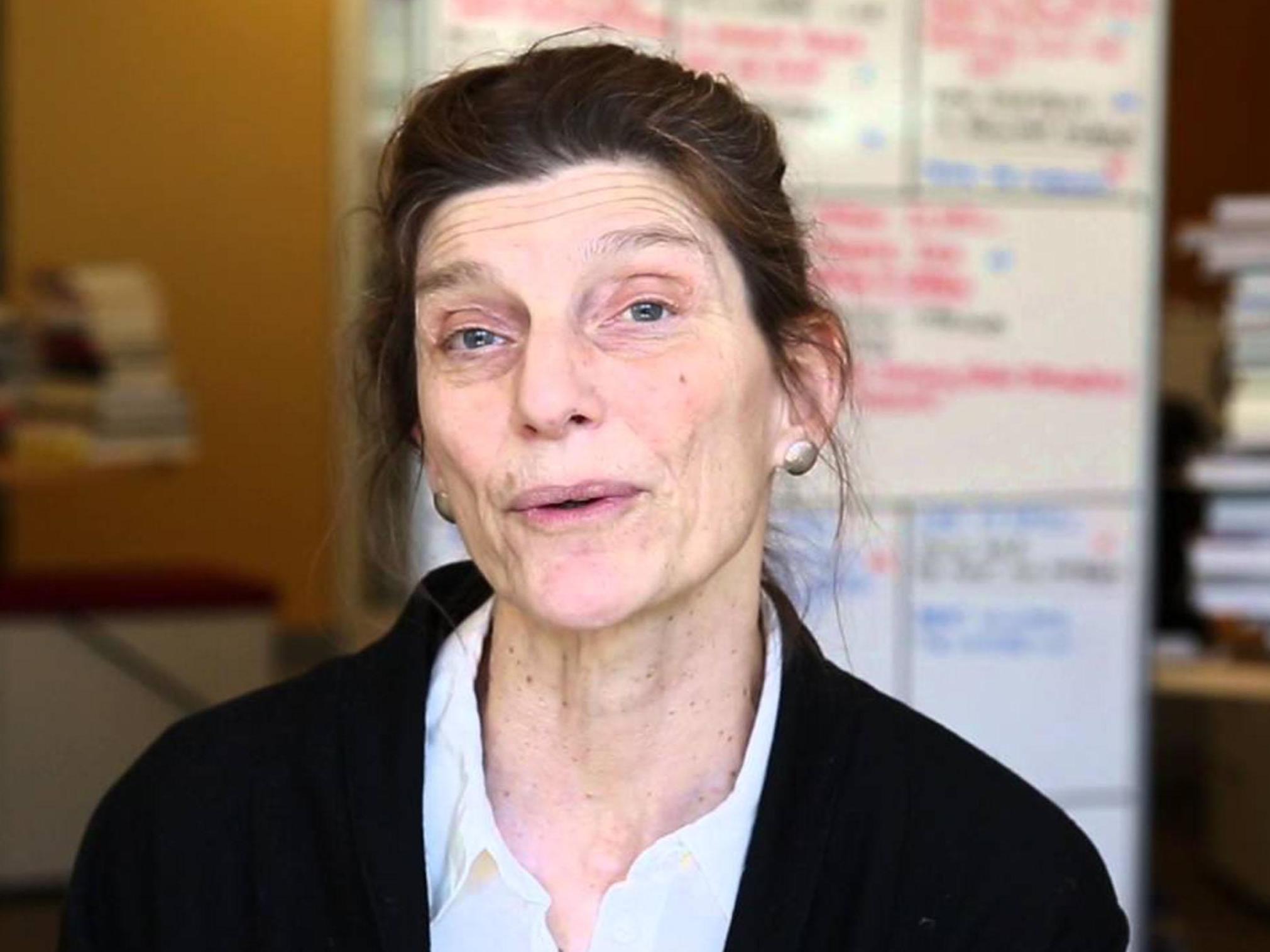Do you need social media followers to get a book deal?
Authors are finding that an online audience is a new box they need to tick at the publisher’s office, reports Rachael Revesz


They say everyone has a book inside of them. But does everyone have what it takes to get a book deal? Besides a great idea, you arguably need talent, time and dedication to tip yourself over the line from aspiring writer to published author. In 2019, you may also need a social media following. Take Pinch of Nom, a cookbook by Kay Featherstone and Kate Allinson, which sold more than 210,000 copies in three days.
Even before the book hit the shelves, Pinch of Nom was the UK’s most read cooking blog. Another major factor contributing to the duo’s potential was their strong Facebook group following of more than 800,000 people, a very engaged and responsive community which shared recipes and slimming tips, not counting the 1.4 million people who like their public Facebook page. These numbers are all the more impressive given the authors didn’t launch the Facebook group until 2016.
The arguable starting point for social media-fuelled book deals started with YouTube. A few years ago, many of the popular vloggers won deals. Zoella, aka Zoe Sugg, published her first novel at age 24 with Penguin in 2014. Her first week sales numbers outstripped Harry Potter and Fifty Shades of Grey (Sugg later admitted the book was ghost written). But by 2017, publishers were complaining the YouTube market was saturated, and were sometimes seeing disappointing UK e-book sales and waning interest from certain foreign markets.
Anna Steadman, a senior commissioning editor at a publisher called Headline, described this phenomenon as the “YouTube gold rush”. She added that publishers now take a more nuanced view of the different social media platforms and how that might affect book sales. “People can have 250,000 followers on Instagram, for example, but that doesn’t always translate into sales,” she said. “Instagram can be quite a passive medium, where people are mainly looking at pictures, while a smaller Twitter or Facebook following, for example, can sometimes be more engaged.”
After the YouTube books came the so-called mummy bloggers. Those that sold very well all had strong followings on Facebook. The Unmumsy Mum, by Sarah Turner, was published last year, five years after Turner started her blog and gathering 650,000 Facebook followers in the meantime. Why Mummy Drinks, by Gill Sims, was published in 2017 and also followed on from a blog. Sims currently has 407,000 Facebook followers. Man vs. Toddler: The Trials and Triumphs of Toddlerdom, by Matt Coyne, also started off as a blog and he now has 241,000 fans on the social media platform.
“We see it [social media] as a big advantage if we like the book but we’ve learned that it’s not enough just to have a huge following,” said Steadman. “The most successful books stand on their own right or have something that moves it [the concept] on a bit. Look at the ‘Why Mummy Drinks’ series, which sold really well: the author has a popular blog called Peter and Jane, but they are funny novels that offer something new to her followers and appeal even if you haven’t heard of her blog before.”
In an age where people can buy Twitter followers, and where Facebook is accused of artificially inflating video viewing figures, publishers are less likely to take big numbers at face value. As Steadman explained, they look for quality over quantity – good news for those of us who could never hope to replicate Pinch of Nom’s Facebook success.
Nonetheless, social media numbers do still come into it. Alex Holder, who has just published her debut non-fiction book, Open Up: The Power of Talking About Money, said at least one editor rejected her proposal due to her social media. She has more than 4,000 Twitter followers.
“It wasn’t the idea, the market, or the writing. It was that I didn’t have enough social media followers,” she said. “They called it having a ‘proven audience’. I remember being asked to pull together every moment of publicity I’d had, if I’d been on TV or mentioned anywhere, to get [my proposal] through with some publishers.”

Holder ended up getting a deal with Serpent’s Tail. There is very little transparency around how much authors are paid, so trying to determine whether authors get offered more if they have a large social media following is almost impossible. Holder is one of the few authors to reveal the advance for her debut (£12,500) and she wrote an article arguing that more people should reveal their advances to increase transparency in the industry. However, she said she understands some publishers’ initial hesitation when it comes to judging a person’s social media following.
“As a debut author who hadn’t yet written the book – I got it [the deal] based on my proposal – that’s a lot of unproven talent there and it’s a risk for anyone to take that on,” she said. “Having an audience lessens the risk.”
Sometimes, all publishers say ‘no thanks’ and the author in question has to take a different tact. Alice-May Purkiss, author of Life, Lemons and Melons, her memoir about battling breast cancer, said that despite her “incredible agent” and the excitement from publishers, her social media following was cited as the reason to not give her a deal.
Bestsellers on Amazon
Top 5 non-fiction
- Pinch of Nom: 100 Slimming Home-Style Recipes by Kay Featherstone and Kate Allinson (813,000 Facebook group members)
- Hinch Yourself Happy: All The Best Cleaning Tips To Shine Your Sink And Soothe Your Soul by Mrs Hinch (126,000 Facebook group members)
- 5 Ingredients – Quick & Easy Food, by Jamie Oliver (6.9m Facebook page followers)
- Mary Berry’s Quick Cooking, by Mary Berry (366,000 Facebook page followers)
- This Is Going To Hurt: Secret Diaries of a Junior Doctor, by Adam Kay (67,000 Twitter followers)
“I had around 3,000 followers across the platforms, which I totally accept is small but I guess I hoped that the idea and my writing would be enough to carry the project,” she said. That was two years ago. Since then she decided to self-publish, creating a Kickstarted campaign. She raised £5,000 for the first print run and donated 10 per cent of the proceeds to charity.
Part of the reason publishers and agents get excited about social media is the way they can generate pre-sales, before the book is printed. If an author can generate enough pre-sales themselves, even without social media, a publisher may then offer a contract.
This was the case with Greta Solomon, author of self-help book, Heart, Sass & Soul: Journal Your Way to Inspiration and Happiness, published by Mango in May this year. “It’s [social media is] definitely a major factor in non-fiction book deals,” said Solomon. “I have a modest amount of social media followers but got a deal with a traditional publisher for my book by doing a crowdfunding campaign and getting pre-orders.”

This is not just an issue for first time authors, either. Helen Foster, author of more than a dozen books on nutrition and dieting, said she was turned down for not having enough followers by a company for whom she had already written a best seller. “I have also written 14 other books, including three since [the rejection], but social media was given as the reason for that one not going further,” she said.
Another hot trend in the non-fiction category millennial memoirs, with recent and upcoming books from many well-known journalists and writers with social media followings, including Joel Golby, Bryony Gordon, Daisy Buchanan and Hannah Witton, who has her own YouTube channel. The memoir trend arguably reached new heights after the publication last year of Dolly Alderton’s memoir and Sunday Times best-seller, Everything I Know About Love.
Anna Steadman was part of the team that bought Alderton’s memoir at Fig Tree (Penguin) before she moved to Headline. Speaking generally about memoirs, Steadman said: “Unless you have a genuinely incredible story, and even if you do,, it helps to have a fanbase who wants to read your story – it could be a newspaper column or a Facebook page but if no one has heard of you then of course it will be harder to sell your book.”
Steadman added that publishers are always looking to break an author out beyond their fanbase, however large, because they want to publish work that will resonate with existing fans as well as people who might not have come across that writer before. Essentially, throwing the net as wide as possible.
But what about fiction? Anna Davis is a literary agent at Curtis Brown and director of the Curtis Brown Creative writing school. Since inception in 2011, the writing courses have seen 63 of their alumni secure book deals for their first novel, either via working with Curtis Brown or with other agents. “I’m not aware of any situations in fiction where someone has been turned down for not having a social media following,” Davis insisted. “I don’t believe it, in fact. Most important is the book, and anything else is an extra.”
Davis added: “There will always be writers not taken on by agents and publishers. Sometimes they want to point the finger at something specific, like the writer’s social media following, but I doubt that’s the real reason in all but a few places.”
In fiction, some authors do not engage online at all, or some write under pseudonyms, like Elena Ferrante. But even Ferrante engages in traditional publicity, for example giving interviews. Many people in the publishing industry look at the top 100 best-selling lists on Amazon, which are updated every hour: the rankings can change as soon as an author appears on a radio show or has an article published, for example.

Many novelists that The Independent spoke to agreed that social media was less important when it came to securing a deal in fiction, compared to other categories.
“It’s all about the book,” said Fiona Mitchell, who has a two-book deal with Hodder. “Social media helps, probably, but it’s not essential to land a deal. Besides, there’s such a long lead in from getting signed to publication that you can build social media in that time.”
Social media helps, probably, but it’s not essential to land a deal. There’s such a long lead in from getting signed to publication that you can build social media in that time
There can be many months, if not years, between birthing an idea for a book and publication day. In the run up to publication, authors are encouraged to share their contacts of people who might be willing to review or read their proofs, as well as engage in social media – although this advice is not usually part of a contract with a publisher.
“If you don’t have a big budget assigned to you, as is the case with most authors, you meet your publicist, discuss personal contacts, who to send proofs to, and who could maybe review the book or do a reading,” said Davis. “A great address book has always been a boon. But now with social media you’ll see your publicist and they will say, ‘You have 50,000 followers – what can we do with that?’”
Twitter is a useful platform to engage with other writers, too. Crime writers, for example, are known for being supportive and generous towards each other’s work.
One of those crime authors is Erin Kelly, who says all the crime writers she knows now she met on Twitter. Those conversations, she said, migrated to Facebook and then became real life friendships. Kelly was signed 10 years ago, before social media became mainstream. Now she regularly posts on Twitter, but said it was a gradual process.
Bestsellers on Amazon
Top 5 fiction
- My Lovely Wife, by Samantha Downing (1,938 Twitter followers)
- The Rumour, by Lesley Kara (1,191 Twitter followers)
- No Way Out, by Cara Hunter (3,593 Twitter followers)
- HG Wells: The Science Fiction Collection (318,000 Facebook page followers)
- The World Walker, by Ian W Sainsbury (748 Facebook followers and just 229 Twitter followers)
“Marketing departments will walk you through it, if you’re new to social media,” she said. “They will show you who to follow or emulate, and how to do it.”
She insists that her books and social media channels are two separate brands. “My Twitter is funny and light and I avoid politics – politics make my blood pressure scoot off the scale. Instead, I share books I’m reading and talk about culture and music,” she said. “I find that doing that is the way forward. But there’s no graph to show whether that leads to book sales. I imagine it’s more a gentle encouragement.”
Kelly added that being present on social media should not be all about self-promotion, as people will switch off. “I would always encourage an author to talk about their book in context, instead of saying ‘buy my book, buy my book’,” she said. “I always follow people I’m genuinely interested in and I don’t do strategic follows.”
The irony is that building up and engaging with your following can take you away from your writing – the most important part of the whole process. For example, Kelly said she bought an app called Freedom for about £30 so she can get her writing done – currently she has a rate of a new book every year.
“Some authors become so anxious developing a following it becomes counterproductive,” advised Davis. “And if an author is really uncomfortable going on social media, I would tell them not to do it.''
Join our commenting forum
Join thought-provoking conversations, follow other Independent readers and see their replies
Comments